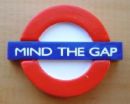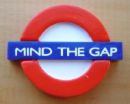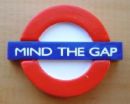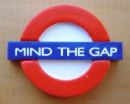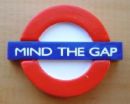 Nine Years Too Late, Lacks Passion & Credibility,
Nine Years Too Late, Lacks Passion & Credibility,
Al Gore
Edit of 5 Jul 09 to observe that Mr. Gore is now worth $100M. Greg Palast not only called the fix before the election, but the one after as well. How sweet it must be to cast We the People adrift.
This book is nine years too late. It lacks passion & credibility. By way of context, and to disclose my inherent bias, I am an estranged moderate Republican who will never forgive Al Gore for 1) picking the de facto Israeli Ambassador and a closet neo-conservative as his running mate; 2) refusing to act on the advance disclosure by Greg Palast of the Bush plan to steal the election by disenfranchising 35,000 to 50,000 people of color in Florida; and 3) refusing to sign or encourage any other Senator to sign the legitimate House of Representatives demand for a repeal of the Florida results and a new election.
In that context, this book is shallow, pedantic, and largely pointless, as futile as his last sixteen years. You would be better off with the ten books I list below, or even with the reviews alone of those ten books. This is a double-spaced easily readable statement of the obvious.
1) TV and advertising have destroyed reason
2) Passionate faith blinds and makes the loyal brain-dead
3) Generals are not allowed to tell the truth and ignored when they do
4) Concentrated wealth and concentrated power doom democracy
5) Corporate power and mass deception go hand in hand
6) Bush administration has taken secrecy and withheld information to new heights
7) Loss of civil liberaties and rise of a police state, including torture, set a new low for America
8) Education and being informed are not the same thing.
9) His top threats are the environment, water, terrorism, drugs & corruption, and pandemics. Evidently he is not familiar with the ten high-level threats identified by LtGen Scowcroft and the United Nations (poverty, environmental degradation, infectuous disease, inter-state conflict, civil war, gencoide, other atrocities, proliferation, terrorism, and transnational crime).
10) Congress failed America by becoming the hand-maiden of the President rather than the Article 1 balance of power.
11) Internet offers hope (but no recognition of the missing sense-making tools including total transparency for all budgets)
I've met Al Gore and I have dealt with his senior staff both in office and now. My bottom line is that he is a very intelligent and well-intentioned individual with a very shallow staff and absolutely no sense of how to build a transpartisan team. He may run for President in 2008, if he does, he will lose unless he discovers the following three fundamentals:
1) Transpartisan meme as represented by Reuniting America (Unity 08 is a fraud, the last gasp of the two-party spoils system, the same one that displaced the League of Women Voters from the Presidential debate process in order to exclude the more sensible Libertarian, Green, Reform and Independent candidates from the debate)
2) Electoral reform as the ONLY major issue facing America
3) Selecting and announcing a multi-party Cabinet in advance, and challenging all the others to do the same–America is too complicated to be managed by a white boy and his cronies! It's time we destroy the Republican and the Democratic Party machines, restore participatory democracy, and end the corrupt “winner take all” system in both the Legislative and Executive branches.
Al Gore continues to have potential, but on his present course he will not earn the Nobel (Paul Hawkin, Herman Daly, and Lester Brown have done more) and he will not restore democracy in America. He's too busy being a hedge fund manager and celebrity speaker with one probllem and no solutions. That's how I see it. He has not earned my vote yet, but I will change parties and vote Democratic if he first wins the Democratic primaries, then selects a Republican as a running mate, and commits to the three ideas above. It's not rocket science. It just takes passion and an appreciation for diversity and dissent, and that is one thing Al Gore has not been able to unleash.
The Tao of Democracy: Using Co-Intelligence to Create a World That Works for All
Escaping the Matrix: How We the People can change the world
Society's Breakthrough!: Releasing Essential Wisdom and Virtue in All the People
All Rise: Somebodies, Nobodies, and the Politics of Dignity (Bk Currents)
Blessed Unrest: How the Largest Movement in the World Came into Being and Why No One Saw It Coming
Ecological Economics: Principles And Applications
Plan B 2.0: Rescuing a Planet Under Stress and a Civilization in Trouble
Losing America: Confronting a Reckless and Arrogant Presidency
The Best Democracy Money Can Buy
Breach of Trust: How Washington Turns Outsiders Into Insiders



